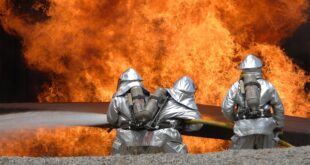The Hydrogen Cyanide Manufacturing Plant Project Report is a critical document for entrepreneurs and investors interested in establishing a facility for the production of hydrogen cyanide, a highly valuable yet hazardous chemical compound used in various industrial applications. This report provides detailed insights into the necessary steps, market dynamics, technical requirements, financial projections, and regulatory considerations essential for successfully setting up and operating a hydrogen cyanide manufacturing plant. As industries continue to seek efficient chemical solutions, understanding the complexities of hydrogen cyanide production becomes crucial for stakeholders in this market.
Importance of Hydrogen Cyanide
Hydrogen cyanide (HCN) is a versatile compound with a range of applications, including:
- Chemical Manufacturing: It serves as a key intermediate in the production of several chemicals, including plastics, resins, and synthetic fibers.
- Pesticides and Herbicides: HCN is used in formulating various agrochemicals, providing effective solutions for pest and weed control in agriculture.
- Mining Industry: Hydrogen cyanide is employed in gold mining, facilitating the extraction of gold from ores through leaching processes.
- Pharmaceuticals: It plays a role in synthesizing pharmaceuticals and fine chemicals, showcasing its importance in the healthcare sector.
Get a Free Sample Report with Table of Contents @
Key Components of the Project Report
The project report for a hydrogen cyanide manufacturing plant typically encompasses several critical aspects necessary for establishing and operating the facility effectively. Below are the key sections commonly included in the report:
Market Analysis
The market analysis section provides insights into the demand for hydrogen cyanide and the competitive landscape. Important aspects covered include:
- Current Market Demand: An overview of existing demand for hydrogen cyanide across various industries and its projected growth driven by increasing industrial applications.
- Target Market Segmentation: Identification of key customer segments, including chemical manufacturers, agricultural companies, and mining firms that rely on HCN.
- Future Trends: Projections regarding the demand for hydrogen cyanide influenced by industrial growth and innovations in chemical applications.
Technical Aspects and Plant Setup
This section outlines the technical requirements and infrastructure needed to establish the manufacturing plant. Key elements include:
- Location Selection: Choosing an appropriate location is vital for ensuring access to raw materials, skilled labor, and distribution channels. Proximity to industries that utilize hydrogen cyanide enhances operational efficiency.
- Machinery and Equipment: The report details the machinery required for producing hydrogen cyanide, including reactors, condensers, and purification systems. Selecting high-quality machinery is essential for maintaining product quality and production efficiency.
- Production Process: While avoiding complex technical jargon, the report provides a general overview of the production process, from raw material procurement to the final formulation of hydrogen cyanide.
Labor and Workforce
A skilled workforce is essential for the successful operation of a hydrogen cyanide manufacturing plant. The project report usually includes:
- Workforce Requirements: An assessment of the number of workers needed for various roles, such as production operators, quality control personnel, and administrative staff.
- Training Programs: Recommendations for training programs to ensure that employees understand the production process, safety protocols, and quality control measures.
- Health and Safety Considerations: Emphasis on the importance of implementing safety protocols to protect workers, particularly when handling hazardous materials during the production process.
Environmental and Regulatory Compliance
Compliance with environmental regulations is crucial for any manufacturing facility. The project report highlights necessary steps to ensure that the plant adheres to local and international environmental standards. This includes:
- Waste Management: Strategies for managing waste generated during production, ensuring proper disposal of hazardous materials, and compliance with regulations.
- Regulatory Compliance: An overview of permits and licenses required for operating the manufacturing plant, including environmental and safety certifications specific to handling hazardous substances.
- Sustainability Practices: Recommendations for adopting sustainable practices, such as minimizing waste, recycling, and ensuring safe handling of materials.
Financial Analysis
The financial analysis section is critical for potential investors to understand the economic viability of the project. While specific numbers are avoided, the report typically includes:
- Initial Investment Estimates: A breakdown of costs associated with land acquisition, infrastructure development, machinery purchase, and setup.
- Operational Costs: Recurring expenses, including raw materials, labor, utilities, maintenance, and marketing efforts.
- Revenue Projections: Estimates of potential revenue based on market demand and production capacity.
- Profitability Analysis: An evaluation of profit margins and return on investment over time, considering market trends and competitive landscape.
Risk Assessment and Mitigation
Every manufacturing venture carries inherent risks, and the hydrogen cyanide manufacturing industry is no different. The project report generally includes a risk assessment section, identifying potential risks and suggesting strategies to mitigate them. Key risks may include:
- Market Risks: Fluctuations in demand for hydrogen cyanide influenced by changes in industry needs and competition. The report suggests strategies such as diversifying product offerings and exploring alternative markets.
- Operational Risks: Challenges related to production efficiency, machinery breakdowns, and supply chain disruptions. The report emphasizes the importance of routine maintenance and contingency planning.
- Regulatory Risks: Changes in regulations affecting the use and production of hydrogen cyanide. Staying informed about regulatory developments and adapting accordingly is vital.
Growth Opportunities in Hydrogen Cyanide Manufacturing
Despite the challenges, the hydrogen cyanide manufacturing industry presents numerous growth opportunities. The project report typically highlights areas for expansion and innovation, including:
- Product Development: Manufacturers can explore producing specialized formulations of hydrogen cyanide for specific applications, enhancing performance characteristics.
- Emerging Markets: There are opportunities to expand into markets with growing demand for chemicals, particularly in developing regions experiencing industrial growth.
- Collaborations and Partnerships: Partnering with chemical manufacturers, agricultural firms, and mining companies can enhance market reach and visibility.
FAQs
1. What is the purpose of a hydrogen cyanide manufacturing plant project report?
It serves as a guide for establishing a manufacturing plant, covering market analysis, production processes, finances, and compliance.
2. Why is hydrogen cyanide significant in various industries?
Hydrogen cyanide is essential for chemical production, agriculture, mining, and pharmaceuticals, offering versatile applications.
3. What are the key production processes for hydrogen cyanide?
The production involves sourcing raw materials, chemical reactions in reactors, purification, and packaging for distribution.
4. How critical is market analysis in the project report?
Market analysis helps assess demand, identify customer segments, and understand competitive dynamics, aiding informed decision-making.
5. What safety measures are necessary in a hydrogen cyanide manufacturing plant?
Safety measures include employee training, maintenance of equipment, and protocols for handling hazardous materials during production.
6. Can hydrogen cyanide products be exported?
Yes, hydrogen cyanide products can be exported, but this is subject to market demand and compliance with international trade regulations.
Related Reports
https://www.expertmarketresearch.com/reports/fantasy-sports-market
https://www.expertmarketresearch.com/reports/material-handling-equipment-market
https://www.expertmarketresearch.com/pressrelease/global-convenience-food-market
Media Contact:
Company Name: Claight Corporation
Contact Person: Lewis Fernandas, Corporate Sales Specialist — U.S.A.
Email: sales@expertmarketresearch.com
Toll Free Number: +1–415–325–5166 | +44–702–402–5790
Address: 30 North Gould Street, Sheridan, WY 82801, USA
Website: www.expertmarketresearch.com
Aus Site: https://www.expertmarketresearch.com.au
 Illuminate Your Mind Empower Your Mind, Inspire Your Journey
Illuminate Your Mind Empower Your Mind, Inspire Your Journey

